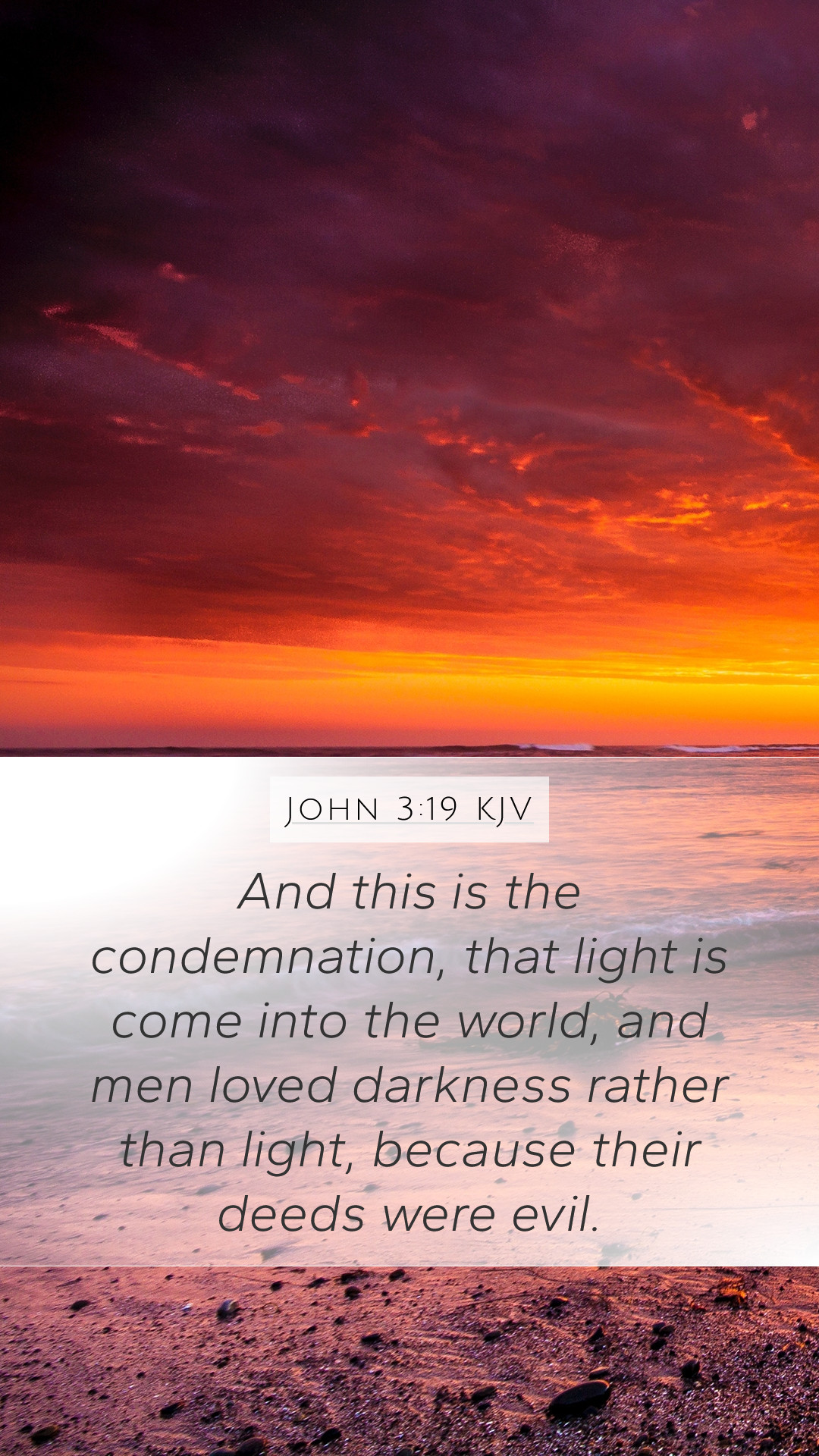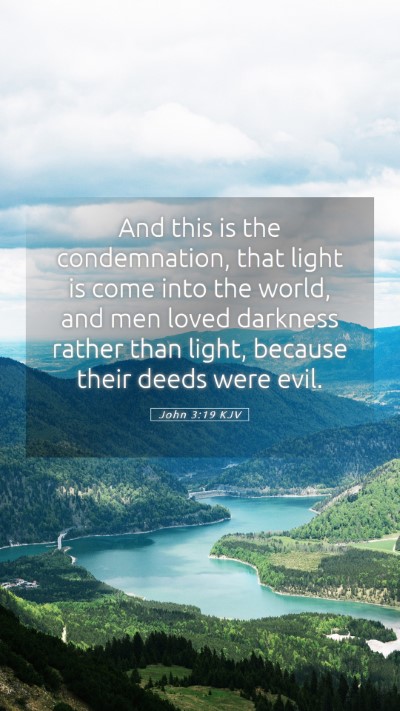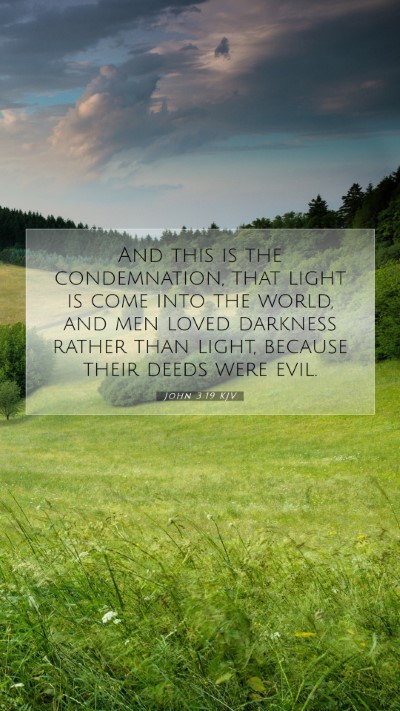Understanding John 3:19
"And this is the condemnation, that light is come into the world, and men loved darkness rather than light, because their deeds were evil."
Bible Verse Explanation
John 3:19 addresses the moral conflict between light and darkness, symbolizing good and evil. Light represents the truth of Jesus Christ, illuminating the hearts and minds of people, while darkness symbolizes sin and ignorance, where individuals are accustomed to hiding their wrongdoings. This verse serves as a crucial moment in the discourse of Jesus regarding the necessity and rejection of divine truth.
Bible Verse Interpretations
1. The Light of Christ:
In this verse, Christ is recognized as the "light" that has come into the world, indicating a divine revelation, bringing knowledge and righteousness. Matthew Henry emphasizes that in accepting Christ, one steps into the light, abandoning the ways of darkness.
2. The Choice of Darkness:
Albert Barnes notes how humanity often prefers the familiar comfort of darkness because it allows them to engage in evil deeds without scrutiny. This highlights a tragic truth about human nature — the tendency to resist that which calls for moral accountability.
3. Consequence of Evil Deeds:
According to Adam Clarke, the actions of individuals reveal their preferences, showing a rejection of God's light in favor of their sinful inclinations. Those who cherish their sinful behavior find the light reprehensible, illustrating why many choose to remain in darkness.
Scripture Analysis
This verse not only represents the conflict of light and darkness but offers an introspective look into the human soul. It questions the alignment of personal choices with spiritual truth, prompting readers to reflect on their own lives.
Key Themes and Concepts:
- Condemnation: The rejection of light leads to spiritual condemnation.
- Sovereign Light: Christ’s light is sovereign and penetrating, unmasking deeds.
- Choice and Consequence: The choice between light and darkness comes with significant spiritual consequences.
Historical Context
Understanding the historical backdrop of first-century Judea provides important insights into this verse. The populace was steeped in legalism and religious practices, often overshadowing the transformative message of Jesus. His insistence on light opposing darkness challenges cultural norms of the time.
Application of Bible Verse
For modern-day believers seeking Bible study insights, John 3:19 serves as a call to examine personal convictions and lifestyle choices. It invites Christians to reflect on the presence of darkness in their lives and to embrace the illuminating, guiding force of Jesus’ teachings. Through Bible study resources, individuals can explore methods to align their actions with the light of scripture.
Practical Applications:
- Self-Examination: Regularly assess your thoughts and actions in light of the teachings of Christ.
- Engagement in Community: Participate in Bible study groups to foster discussions about light and darkness in life.
- Committing to Truth: Uphold the truths revealed in scripture, choosing light over comfortable sin.
Related Bible Cross References
- John 1:5: "And the light shines in the darkness, and the darkness did not comprehend it."
- John 12:46: "I have come as a light into the world, that whoever believes in Me should not abide in darkness."
- Ephesians 5:8: "For you were once darkness, but now you are light in the Lord. Walk as children of light."
- Romans 13:12: "The night is far spent, the day is at hand. Therefore let us cast off the works of darkness, and let us put on the armor of light."
Conclusion
In light of the insights gathered from public domain commentaries like those from Matthew Henry, Albert Barnes, and Adam Clarke, John 3:19 prompts a deeper discussion on personal accountability in faith, as well as the importance of choosing the light of Christ over the shadows of sin. This verse, rich with implications for both personal conduct and spiritual understanding, calls believers to be vigilant in seeking the light, emphasizing the transformative power of Jesus' message.


